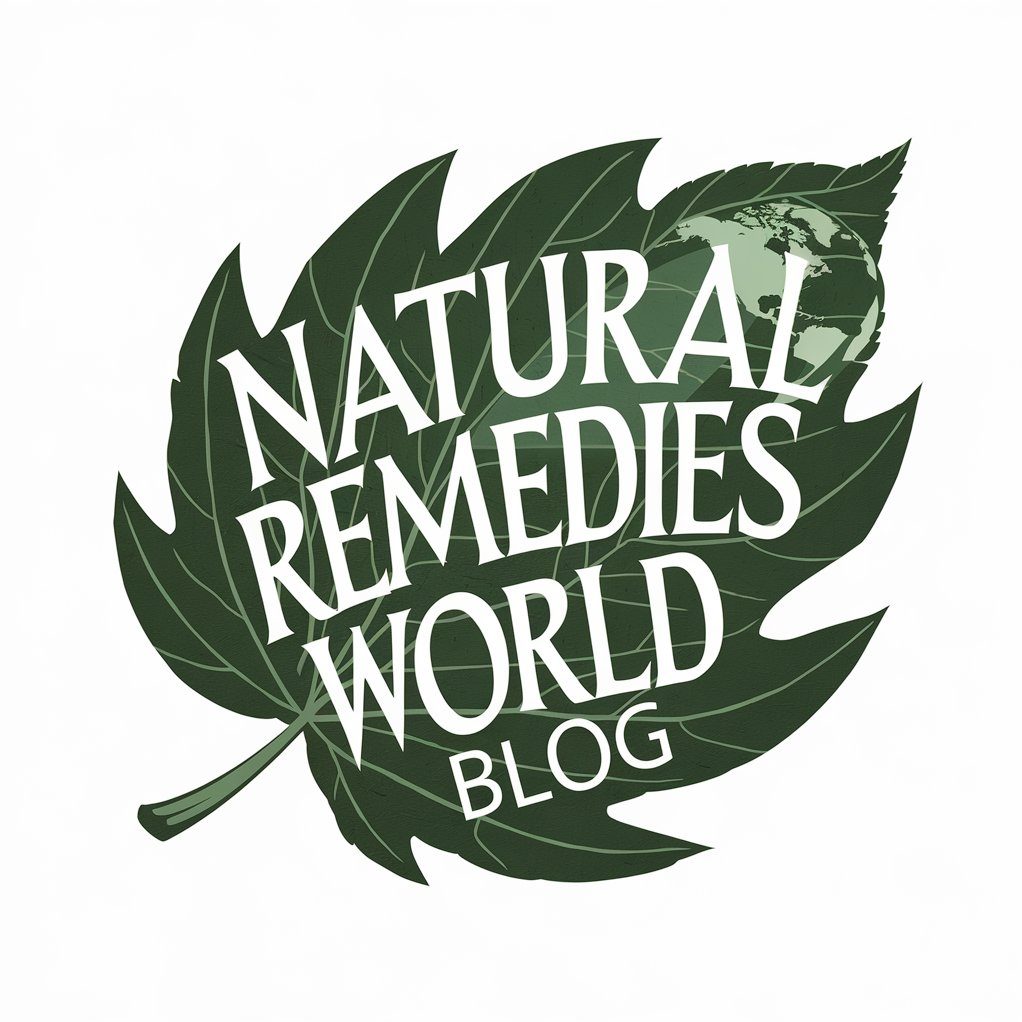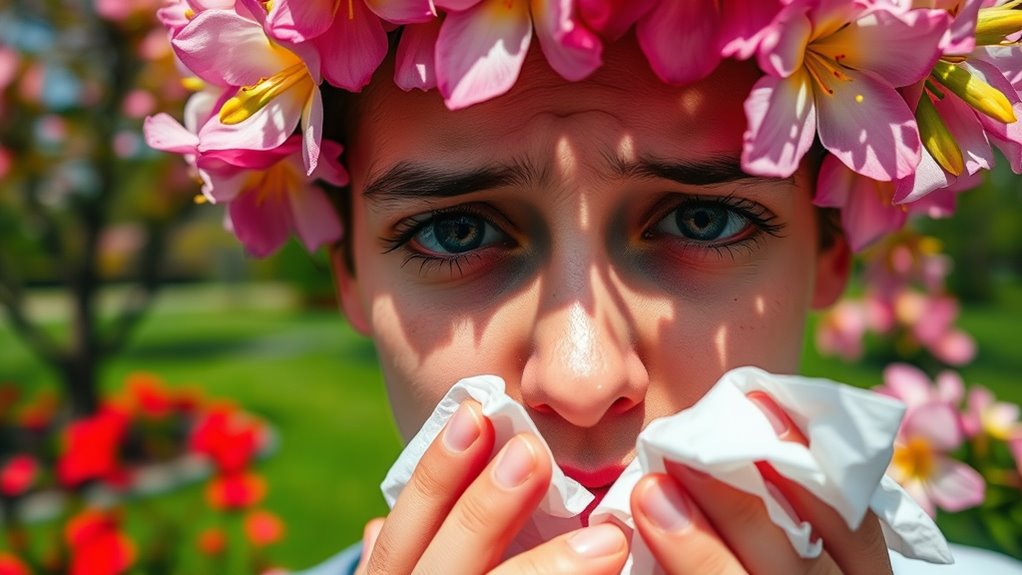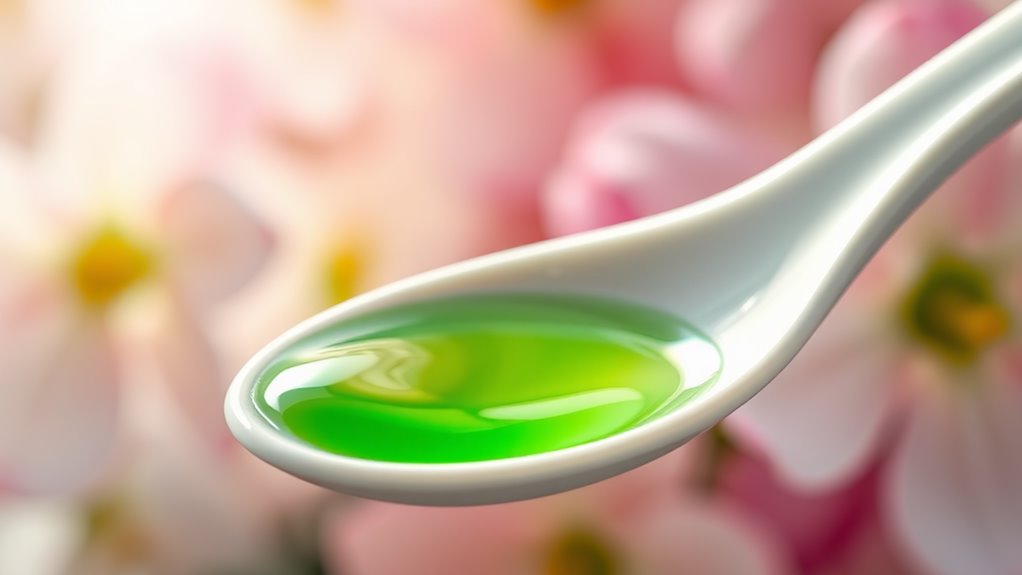Seasonal Allergies Gone in 24 Hours Try This!
If you want to tackle seasonal allergies in just 24 hours, try a saline nasal rinse to clear allergens, drink ginger tea for its anti-inflammatory effects, and eat antioxidant-rich foods like berries. Stay hydrated and consider using local honey to adapt to local pollen. Keep your windows closed to reduce exposure, and shower after outdoor activities. With these strategies, you can significantly ease your symptoms. There’s more to explore for lasting relief!
Understanding Seasonal Allergies
When the seasons change, many people find themselves battling the discomfort of seasonal allergies. You may notice symptoms like sneezing, itchy eyes, or a runny nose as pollen levels rise.
These reactions occur when your immune system overreacts to allergens in the environment, treating them as threats. Common triggers include tree, grass, and weed pollen, which vary with the seasons.
During spring, tree pollen is often the culprit, while summer brings grass pollen, and fall introduces ragweed. Understanding your specific triggers can help you manage your symptoms more effectively.
Keeping track of pollen forecasts and avoiding outdoor activities during peak times can significantly reduce your exposure. By staying informed, you can better prepare for the challenges that seasonal allergies bring.
Natural Remedies for Quick Relief
If you’re seeking quick relief from seasonal allergy symptoms, natural remedies can be a great option.
Start with a saline nasal rinse to clear allergens from your nasal passages. You can also try local honey; consuming it regularly may help your body adapt to local pollen.
Essential oils like eucalyptus or peppermint can provide soothing relief when inhaled. Another effective remedy is consuming ginger tea, known for its anti-inflammatory properties.
Consider using a humidifier to keep your indoor air moist, reducing irritation.
Lastly, incorporating quercetin-rich foods, such as apples and onions, can help stabilize mast cells and reduce histamine release.
These simple steps might just help you breathe easier and enjoy your day without those pesky allergy symptoms.
Dietary Changes to Combat Allergies
Making dietary changes can significantly help combat seasonal allergies. By incorporating specific foods into your diet, you can strengthen your immune system and reduce allergy symptoms.
Here are three key dietary changes to consider:
-
Increase Omega-3 Fatty Acids****: Foods rich in omega-3s, like salmon and flaxseeds, can help reduce inflammation and support overall health.
-
Add Antioxidant-Rich Foods****: Incorporate fruits and vegetables high in antioxidants, such as berries, spinach, and kale. These can help strengthen your body’s defense against allergens.
-
Stay Hydrated: Drinking plenty of water maintains moisture in your airways, helping to flush out allergens and reduce congestion.
Lifestyle Modifications for Allergy Management
To effectively manage seasonal allergies, adopting certain lifestyle modifications can make a significant difference in your daily comfort. Here are some practical changes you can implement:
| Modification | Benefits | Tips |
|---|---|---|
| Keep windows closed | Reduces pollen intake | Use air conditioning instead |
| Shower after outdoor activities | Cleans allergens off skin | Wash hair to avoid transfer to bedding |
| Regular cleaning | Minimizes dust and mold | Use a HEPA filter when vacuuming |
Holistic Approaches to Alleviate Symptoms
While conventional treatments can provide relief, exploring holistic approaches may enhance your overall well-being during allergy season.
Integrating natural methods can help you manage symptoms effectively. Here are three holistic strategies to consider:
-
Dietary Adjustments: Incorporate anti-inflammatory foods like leafy greens, berries, and omega-3 rich fish. These can boost your immune system and reduce inflammation.
-
Mindfulness and Meditation: Practicing mindfulness or meditation can help lessen stress, which often exacerbates allergy symptoms. A few minutes a day can make a difference.
-
Physical Activity: Engaging in regular exercise improves circulation and strengthens your immune system. Even a short walk outdoors can help clear your sinuses.
Essential Oils and Their Benefits
Essential oils can provide a natural and effective way to alleviate seasonal allergy symptoms, offering a fragrant alternative to conventional treatments.
When you inhale oils like peppermint or eucalyptus, they can open your airways and ease congestion. Lavender oil’s calming properties may help reduce inflammation, while tea tree oil acts as a natural antihistamine, providing relief from itchy eyes and sneezing.
You can add a few drops of these oils to a diffuser or mix them with a carrier oil for a soothing chest rub.
Experimenting with different combinations can help you find the perfect blend for your needs. By incorporating essential oils into your routine, you can enjoy a more comfortable allergy season and embrace the power of nature.
Creating an Allergy-Free Environment
Incorporating essential oils into your routine can be a great step, but creating an allergy-free environment is equally important for minimizing symptoms.
You can significantly reduce allergens in your home by following these three simple steps:
-
Regular Cleaning: Dust surfaces and vacuum carpets weekly. Use a vacuum with a HEPA filter to trap allergens effectively.
-
Control Humidity: Keep indoor humidity between 30-50%. Use dehumidifiers in damp areas to prevent mold growth, which can trigger allergies.
-
Air Quality: Invest in an air purifier with a HEPA filter. This will help remove airborne allergens, providing cleaner air for you and your family.
Frequently Asked Questions
Can Pets Trigger Seasonal Allergies in Humans?
Yes, pets can trigger seasonal allergies in humans. Their dander, saliva, and urine contain allergens that might cause reactions. If you’re sensitive, you might notice increased symptoms when around furry friends or in their environment.
Are There Specific Allergy Medications to Avoid?
You should avoid certain allergy medications like first-generation antihistamines, which can cause drowsiness. Additionally, steer clear of medications that contain decongestants if you have high blood pressure, as they can raise your blood pressure levels.
How Can Weather Changes Impact Seasonal Allergies?
Weather changes can trigger your seasonal allergies by increasing pollen levels or causing plants to release allergens. When temperatures rise or rain falls, you may notice your symptoms worsen, so be prepared with your allergy remedies.
Is There a Link Between Stress and Allergy Symptoms?
Yes, there’s a link between stress and allergy symptoms. When you’re stressed, your body releases chemicals that can worsen inflammation, making your allergies feel more intense. Managing stress can help alleviate some of those symptoms.
Can Seasonal Allergies Worsen With Age?
Yes, seasonal allergies can worsen with age. As your immune system changes, it might become more sensitive to allergens, leading to increased symptoms. It’s important to monitor your reactions and seek appropriate treatment if needed.





